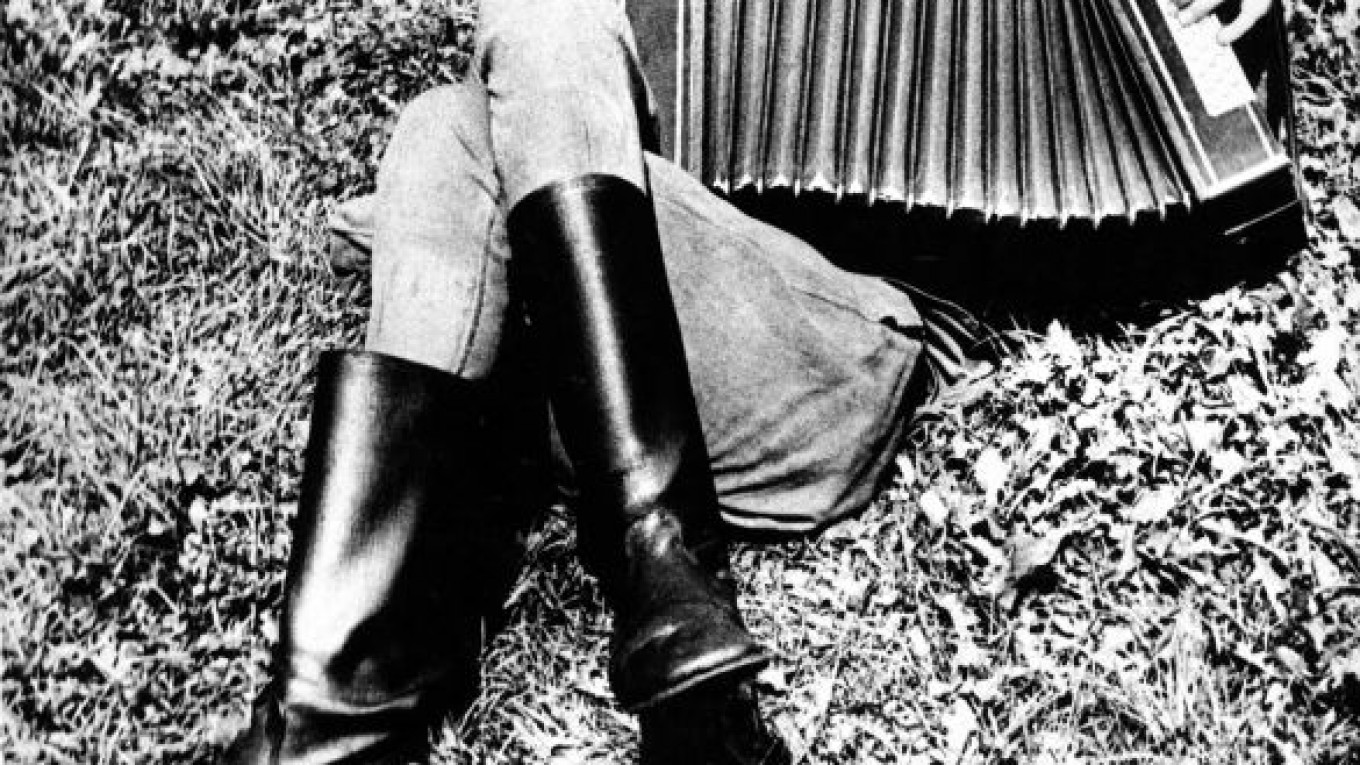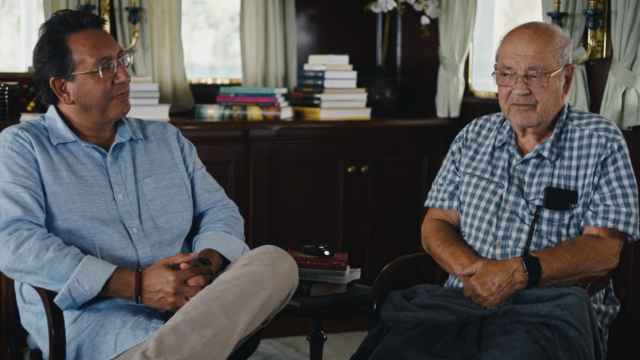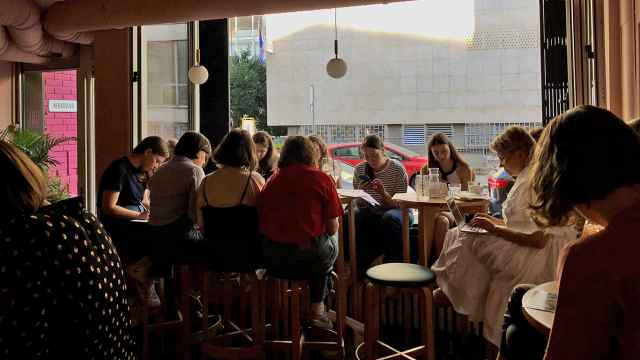The Lumiere Brothers Photogallery continues its series of Soviet photo-art exhibitions with a fascinating show that looks at the Lithuanian photography school of Aleksandras Macijauskas, Antanas Sutkus and Vitalijus Butyrinas, which shone brightly in the 1970s.
“These artists are the ‘monsters’ of the Lithuanian school, the ones who created it and reflected its most typical features,” said Natalya Grigoriyeva, curator of the exhibition.
Lithuanian photographers were the trendsetters of the world’s photography art in the 1970s, Grigoriyeva said. They took many of the first prizes at international exhibitions in that decade and started a trend of moving away from single shots to compositions with multiple focus points as well as taking a series of photos on one subject.
“I was trying to show Lithuania as it is,” photographer Antanas Sutkus said. “The art of photography charmed me during my school years, when I saw how a piece of white paper put into a developer transforms into an image. I started to shoot real life from that point on, without any exaggeration.”
“Though Lithuania was part of the Soviet Union, it always had a lot of Western culture,” Grigoriyeva said. “The country’s geographic position influenced its perception of Soviet reality. That’s why we can see Sutkus’ sad pioneer or poor people sitting on a bench.”
The genesis of the exhibition began four years ago when the photo album “Russian Photography Anthology. 1960s-1970s” was published. As part of promotion for the book, many photographers were invited to Moscow from the republics of the former Soviet Union.
“They greeted one another warmly at the publication launch,” Grigoriyeva said. “For many of them, it had been decades since they had seen one another. Lithuanians were also part of the event, but they stood a little bit apart, as if they were together with everyone else and yet didn’t want to be mixed up. They represented their own Lithuanian photography, a truly unique phenomenon. So we decided to collaborate with them for a new exhibition dedicated particularly to Lithuanian photography school.”
Sutkus’ series “The People of Lithuania” covers the two main topics of his career: ordinary village people from the place he lived and scenes from ordinary life. Both his portraits and reportage images are parables of a mysterious kind.
Many of the shots on show have never been printed before.
“I never throw away negatives,” Sutkus said. “I have more than 700,000 of them, but less than a third of them have ever been shown to the public.”
Another series that stands out is by Macijauskas, who traveled all over the country catching unique images of countryside living in his series “Lithuanian Village Markets.”
Apart from the realism of Sutkus and Macijauskas, there is also Butyrinas’ surrealism on show. Butyrinas was a photomontage expert who experimented with a myriad of ways of using chemicals to transform an image to develop his intricate visual metaphors. Every photo by Butyrinas is unique and inimitable since his printing methods are impossible to repeat, Grigoriyeva said.
“Lithuanian Photography” runs till Nov. 7 at the Lumiere Brothers Photogallery. Krasny Oktyabr Chocolate Factory. 3 Bolotnaya Naberezhnaya, Bldg. 1. Metro Polyanka. Tel. 230-3868, http://gallery.lumiere.ru.
A Message from The Moscow Times:
Dear readers,
We are facing unprecedented challenges. Russia's Prosecutor General's Office has designated The Moscow Times as an "undesirable" organization, criminalizing our work and putting our staff at risk of prosecution. This follows our earlier unjust labeling as a "foreign agent."
These actions are direct attempts to silence independent journalism in Russia. The authorities claim our work "discredits the decisions of the Russian leadership." We see things differently: we strive to provide accurate, unbiased reporting on Russia.
We, the journalists of The Moscow Times, refuse to be silenced. But to continue our work, we need your help.
Your support, no matter how small, makes a world of difference. If you can, please support us monthly starting from just $2. It's quick to set up, and every contribution makes a significant impact.
By supporting The Moscow Times, you're defending open, independent journalism in the face of repression. Thank you for standing with us.
Remind me later.






